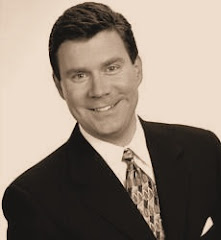 Twenty seven years ago I worked in a convalescent hospital as a certified nursing assistant. Typically when you work in a facility such as this, you expect to take care of elderly patients.
Twenty seven years ago I worked in a convalescent hospital as a certified nursing assistant. Typically when you work in a facility such as this, you expect to take care of elderly patients. Frank was a young man, prematurely gray, who suffered from cerebral palsy. As a young teenager I couldn’t begin to fathom the depth of what imprisoned him. I am just now starting to comprehend it.
Cerebral palsy is a neuromuscular developmental disorder of the central nervous system. Its causes and effects are complex. It can happen before, during or after birth. Its origins have been linked to the genes and yet its effects can be as a result of an injury to the brain (such as lack of oxygen at birth). Some people with CP have gross motor impairment and paralysis, yet have brains that function on a cognitive level equal to you and me.
In my life I’ve known several people with C.P. Frank was someone I looked forward to seeing everyday. He had good days and bad days. His frustrations were mostly about being misunderstood. He would try so hard to communicate something and just resign himself to the fact that on some days he just couldn’t get his point across. I worried about him because I sensed he was resigned to his “prison”, where he was left alone with his thoughts, feelings, wishes and desires. These would remain bottled up in his mind because he lived in a body that wouldn’t allow an outlet for them to come out. On really bad days he would simply cry. I have tears in my eyes as I write this.
Wally is a man I was introduced to in an independent film, produced and directed by his friend, Bob Fink. He was 56 years old when his parents passed away. He lived with them all his life. He had no education and no real prospects. His life was centered around the family who loved him and the lawnmower he operated on his property. His story is compelling. Wally reminded me so much of Frank. As I watched the documentary about the conflicts his family was facing with regard to his future. Bob examines a common dilemma facing most families with members who require extended care; whether they suffer from C.P, Autism, or Downs Syndrome.
It is a film about the enormous complexity of loving and being loved. It’s a compelling and haunting. The films message says more about being “normal” than about what the obstacles are to being “disabled”. http://sweatyboyproductions.com
Joey Deacon and Sara didn’t know each other. I met Joey through his autobiography. His mother instinctually knew he was brilliant. Unfortunately she died before it could be realized.
Sara is a friend with triumphs and sorrows. Despite her “disability”, Sara graduated college with a bachelor’s degree, married and had four children. She overcame tremendous obstacles with her disabilities, but she continues to face prejudice and abuse because she suffers from the obvious affects of C.P. One assumes because she is ‘clumsy’ that she is somehow incompetent. She no longer resides with her family. Her story is still unfolding and it haunts me.
Joey Deacon was institutionalized most of his life. Because he was unable to communicate freely, he was “assumed” to be mentally retarded. However, with the help of his friends Ernie Roberts, Tom Blackburn, and Michael Sangster, he was able to write a book.
All four men had cerebral palsy in one form or another, yet cooperatively, they were able to open the channels for Joey’s words to flow. One couldn’t speak, so the other became the mouth, one couldn’t type, so the other became the fingers – like a fine oiled machine they became Joey’s voice. It is one of the most compelling books, I’ve ever read. The proceeds from Joey’s book released all four men from their institutional setting. Unfortunately,
Frank, Wally, Sara & Joey possess part of my conscience. I look up to them in ways that people admire their heroes. Their lives are as important as any other. Their hopes, dreams and desires no less. We owe them something more. Perhaps our attention, our time, understanding and respect. They are simply prisoners in bodies that are locked. I pray we find the keys to unlock their doors because they have so much to teach us.
Tammy Maher is a resident of El Dorado Hills and a biweekly columnist for the Mountain Democrat. You can reach her by email at familyfare@sbcglobal.net or on the web at www.familyfare.blogspot.com








